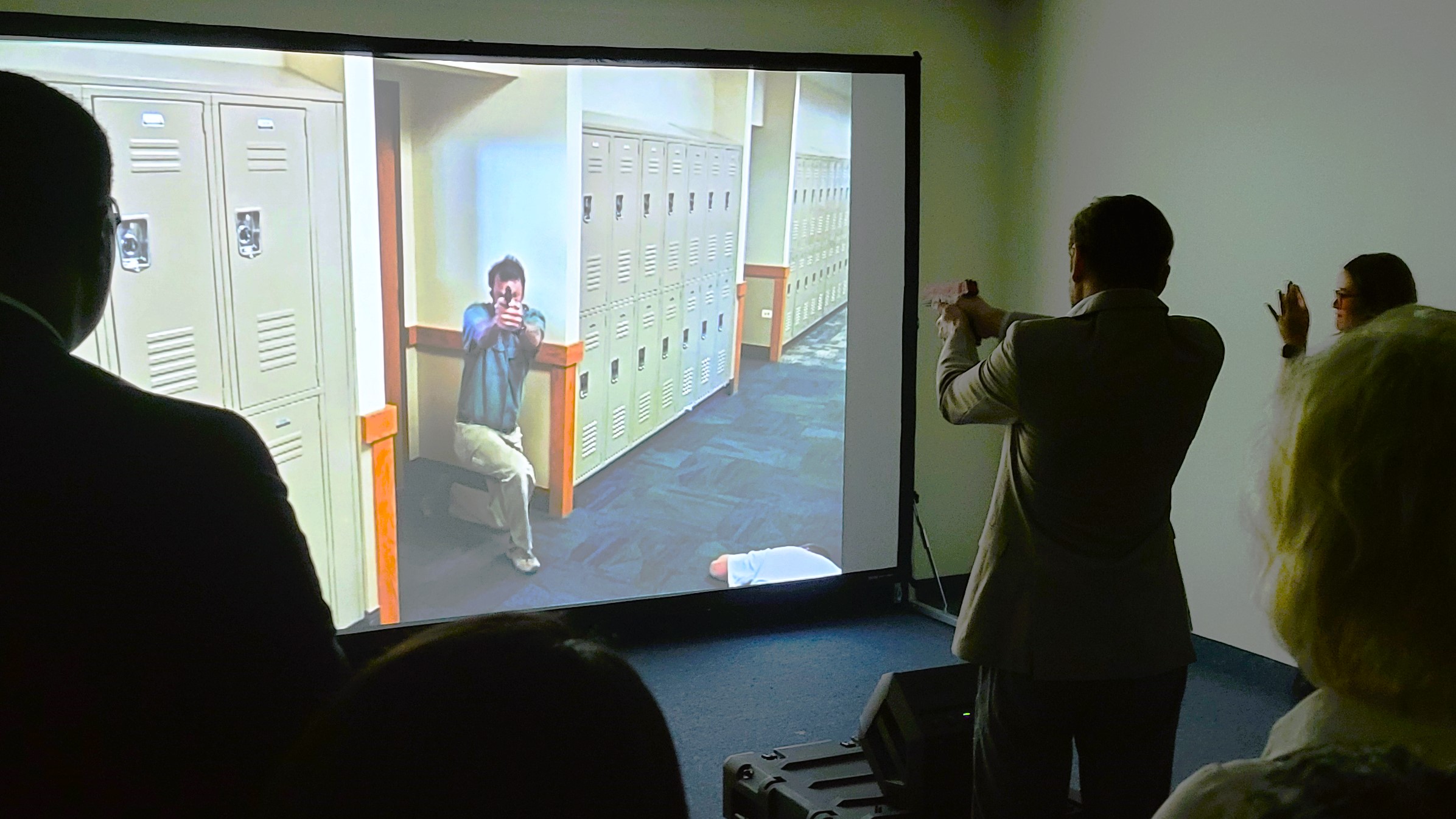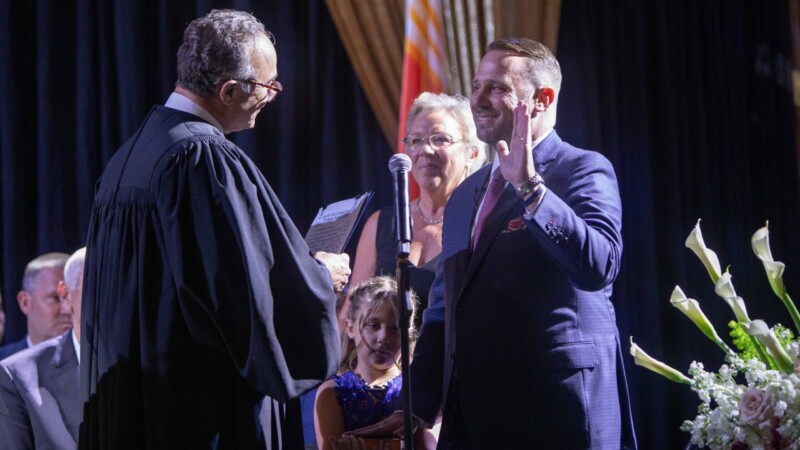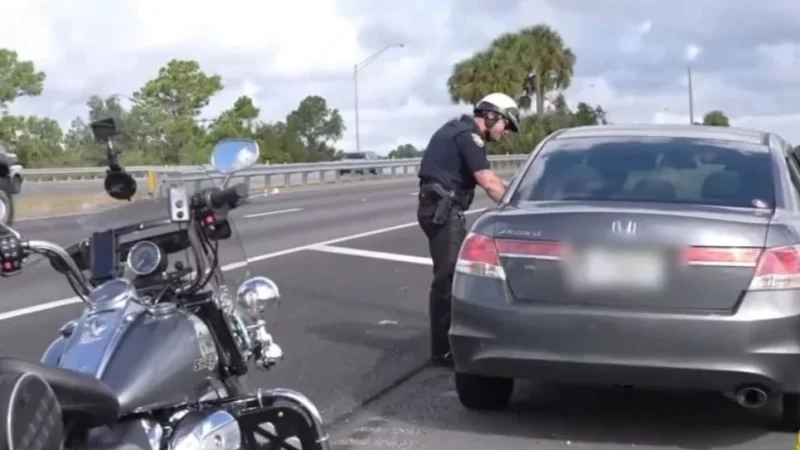Justin Kunst held a simulated Glock pistol in a combat stance Wednesday as he “walked” through a school corridor projected on a wall-size screen before him.
Gunshots boomed as he imitated a police officer in an active school shooter reenactment. Screaming students ran past him.
The local advertising executive was trying out a new interactive tactical simulator at Keiser University.
Kunst leveled his simulated gun at a man on the screen, who turned with his own weapon in hand. Kunst fired laser pulses, and the simulated school gunman was down.
“It was very realistic. The firearm itself felt real, and the scenario — I felt like I was in that scenario and the adrenaline was pumping,” Kunst said afterward. “It responded to my actions so I felt like I was in that scenario, and I feel like this will be an excellent training for anyone in the profession, once they get that experience.”
Jacksonville becomes the latest of 18 Keiser University campuses in Florida to get the system, called Multiple Interactive Learning Objective, or MILO.
Using an interactive video screen, law enforcement and criminal justice students with simulated handguns and Mace canisters learn critical training and ways to deescalate a situation they may face as a police officer some day.
“They have to look at the scenario and base their decisions on what they are looking at — they have to do critical thinking, and also have to engage in decision making skills,” said university legal studies program director Michael Rutledge. “This helps them make better decisions when they decide what career they want to go in, be it law enforcement, be it social services, be it psychology — it is all involving critical thinking and decision making.”
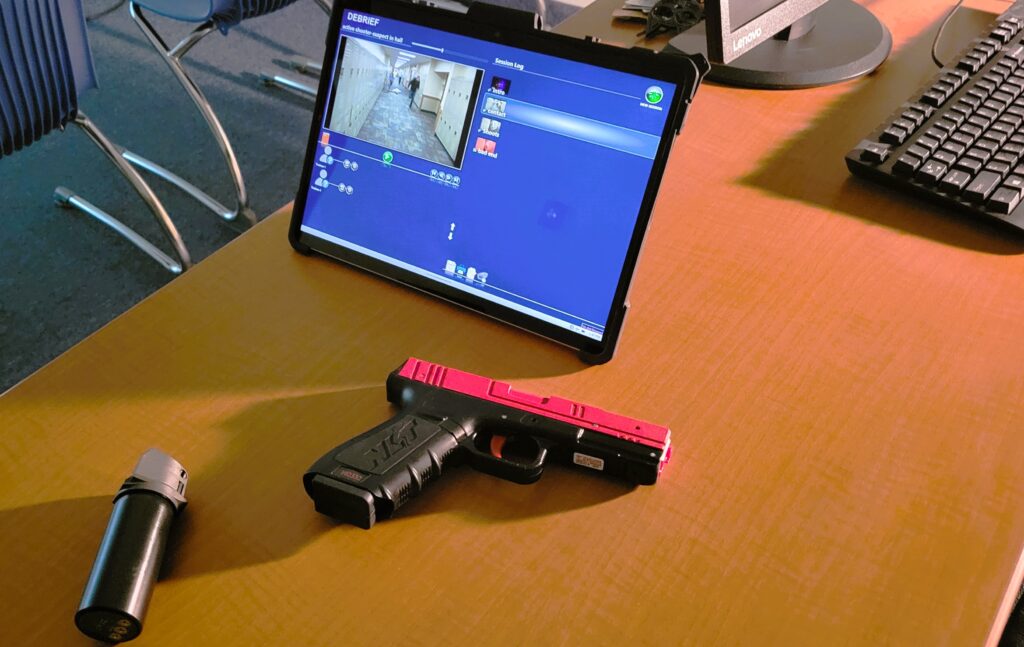
Michigan-based FAAC Inc. makes the system, which displays different scenarios designed to prepare students for real-world challenges like domestic disputes, armed encounters and issues with people in crisis. It includes a computer with multiple scenarios projected onto the screen, plus a camera that detects where the gun’s laser beam hits to see if the shot “kills” the suspect.
Keiser University premiered the MILO in a classroom at its Southpoint campus with local business leaders, plus law enforcement like Sheriff T.K. Waters and members of the Duval County School and Atlantic Beach police departments.
Before getting the MILO system, students had books or videos when it came to learning how to handle stressful scenarios. Setting up a simulated incident in a parking lot doesn’t work as well as an interactive system where a teacher can rerun the simulation on the screen and critique what students did or did not do, Rutledge said.
“What we want to do is put them in a situation where it is as real as possible, but it is also in a training environment,” said Rutledge, a retired Sheriff’s Office assistant division chief. “And here, we can tell them what mistakes they made based upon what they did in the scenario. Then we can go over and cover everything.”
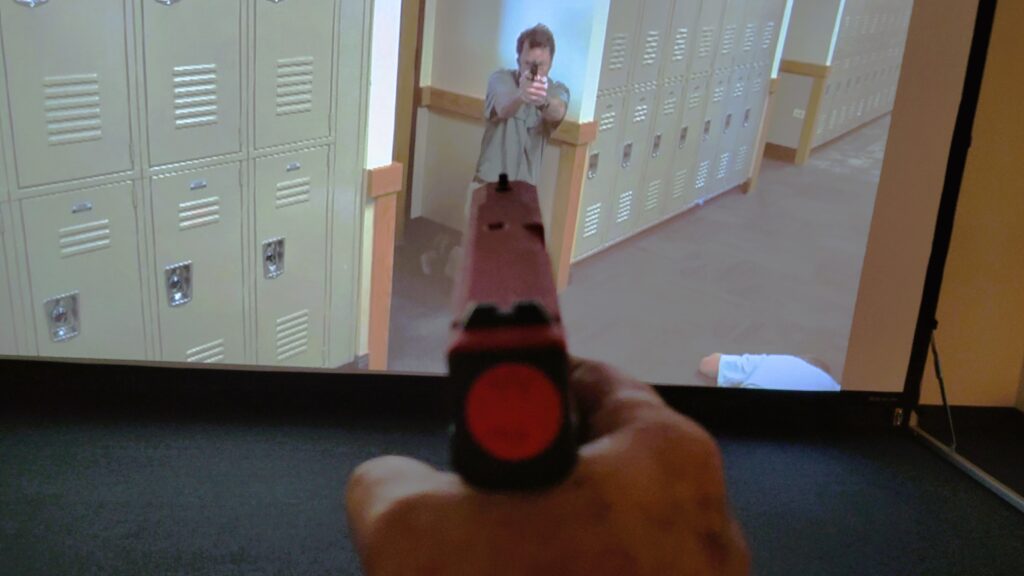
The simulations include the school shooter, a church hostage, an angry spouse in an abuse case and an armed robber with a gun to someone’s head. With a tap, Rutledge can change the “shooter” to a victim or make a scared victim into a gunman, leaving the student with a split-second decision to make.
“This gives them an opportunity to see what really goes on, and it actually gives them an adrenaline rush,” Rutledge said. “They are actually feeling it as they are going through it. We want to make sure they made the right decision, and when they don’t make the right decision, they know what the mistakes are — we discuss them.”
That variety, and how real these interactive scenarios can seem, can be a good way to improve a law enforcement and criminal justice curriculum, said Duval County School Police Lt. Stefanie Walker.
“I think it could be awesome so they can have a good understanding of what it is that is required of them if they are going to have to shoot someone,” Walker said. “Of course, we don’t want that to happen. But if that does happen, they need to know when to shoot and when not to shoot.”
Training also will be available to police officers and private security companies, Rutledge said.
Keiser received a state grant to install MILO units at Florida campuses at about $40,000 apiece.



